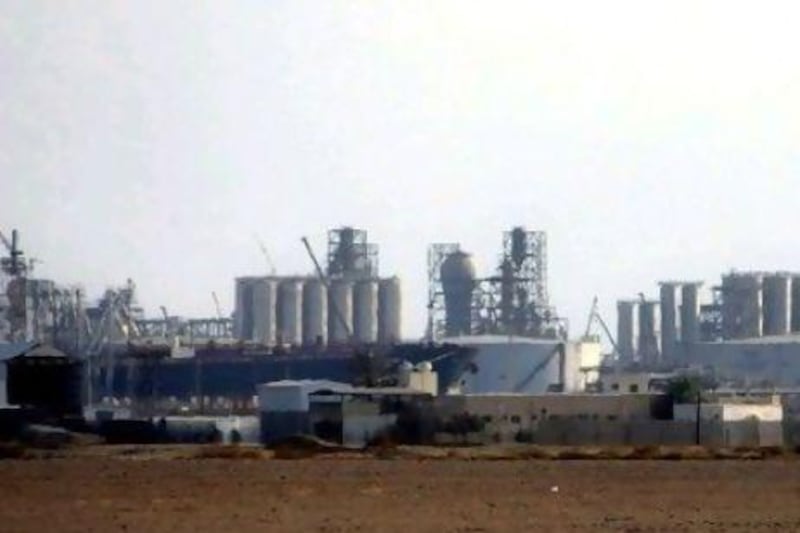Viewed in isolation, Dow Chemical's decision to fund an academic research centre in Saudi Arabia has no obvious payback.
But consider there is a US$20 billion (Dh73.46bn) petrochemicals project hanging in the balance, and the US company's move begins to make sense.
Saudi Arabia is in a dance with investors over how to develop an industry that relies on its natural resource base, but unlike oil, has the potential to create thousands of jobs.
The kingdom has spent three decades and billions of riyals to become one of the world's biggest makers of plastics building blocks. By 2014 it is projected to account for a tenth of the world's production capacity.
Now it wants to go further down the production line, from plastic pellets to the factories that shape those pellets into diminished products.
Until now, the government has used its trump card - a heavy discount on natural gas feedstock - to persuade companies to front that investment.
But when the current gas regulations expire at the end of this year, the government will have an opportunity to raise those prices or create an incentive for investors to do more.
Despite immense resource wealth, Saudi Arabia struggles to provide enough jobs for its citizens. The kingdom needs to create 5 million jobs for nationals by 2030 to address the unemployment rate, which now stands at 10 per cent, according to the government.
Prince Faisal bin Turki, the Saudi deputy energy minister, is in charge of the gas allocations.
He berated industry executives at a recent conference in Yanbu for employing too few Saudis. "From now, we need to talk about how many jobs are created from using your products."
The energy ministry, which doles out the raw materials such as natural gas or naphtha that petrochemical makers require, has not announced if or how it will revise the feedstock regime.
Those in the industry expect the cost to go up.
Saudi Arabia needs to make that pricing system more transparent, says Mohammed al Mady, the chief executive of Saudi Basic Industries Corporation (Sabic).
"To convince downstream investors to invest in Saudi, you have to have incentives," he says. "It cannot be developed in the same way; we are going about it in a fragmented approach."
A feedstock price rise would be troubling for Dow, which plans to build one of the world's largest petrochemicals plants in a joint venture with the state-owned oil company Saudi Aramco.
The project, which is valued from $17bn to $25bn, would represent the biggest foreign investment into the kingdom's energy industry. Dow and Aramco expect to complete the engineering and design work by the middle of this year.
But the project has been recalibrated to account for infrastructure needs and the cost of land, leading to last year's change in the proposed site from the refining centre of Ras Tanura to Jubail, where petrochemicals plants are clustered.
The kingdom wants petrochemical companies to sell their products to small to medium-size businesses yet to come to Saudi Arabia. Conversion and manufacturing create more jobs for every dollar of investment than do petrochemicals.
"You have to make money by employing Saudis, developing markets, rather than exporting to a very nice port to faraway countries where they convert it and send it back to us," Prince bin Turki said.
"Most of the production is going outside the country. most of the chemical companies in the world, their production is consumed very close to their plants. Why are you not doing this?"
But to create those jobs Saudi Arabia must persuade manufacturers to set up operations in a region that does not benefit from the same low labour costs as China, which has emerged as the preferred destination for investment in manufacturing and plastics conversion.
The government has turned to petrochemical companies to finance that downstream investment, either through closed-door negotiations for feedstock allocations or openly urging them to help smaller conversion companies.
Such investment will not be profitable for some time, say petrochemical executives.
"We tried our best to link in many converters to Saudi Arabia," says Moayyed al Qurtas, the chief executive of the Saudi petrochemicals maker Tasnee.
"Once the molecules are there and once the environment is conducive to the role of the downstream industry, you will see the downstream industries thriving up to the point where it is commercially viable."





